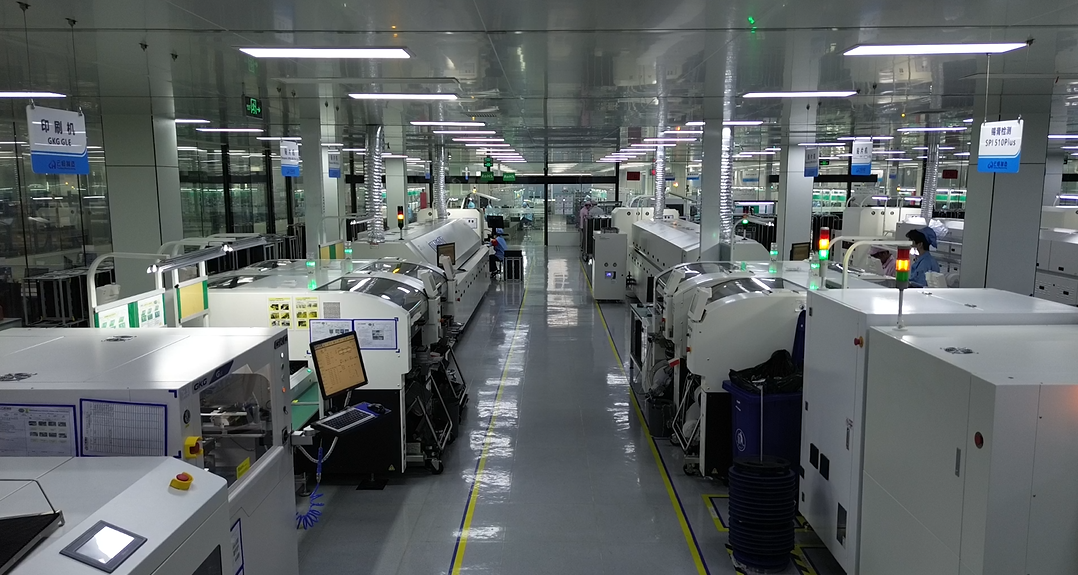TheMultifacetedLandscapeoftheElectronicsIndustry(电子行业用英语怎么说)
The electronics industry is a vast and continuously evolving field, encompassing a wide range of products, technologies, and applications. From consumer electronics to industrial automation, it plays a crucial role in shaping our modern world.
History of the Electronics Industry:
The electronics industry has come a long way since its inception in the late 19th century. It all started with the invention of the telegraph by Samuel Morse in 1837, laying the foundation for modern communication systems. Over the years, numerous breakthroughs have occurred, including the development of the transistor in 1947, which made electronic devices smaller, faster, and more energy-efficient. The integrated circuit (IC) followed suit in the early 1960s, further miniaturizing electronic components and paving the way for today's advanced electronic systems. Throughout the 20th century, the electronics industry witnessed rapid growth and expansion, driven by continuous innovation and technological advancements.
Major Players in the Electronics Industry:

The electronics industry is dominated by several key players who have established themselves as global leaders in their respective domains. Some of these companies include Apple Inc., Samsung Electronics Co., Ltd., LG Electronics Inc., Sony Corporation, and Panasonic Corporation. These companies are known for their cutting-edge products, innovative designs, and strong brand reputations.
For instance, Apple Inc. is renowned for its iPhone smartphones, iPad tablets, Mac computers, and other consumer electronics products. Samsung Electronics Co., Ltd., on the other hand, specializes in a wide range of electronic devices, including televisions, refrigerators, washing machines, and home appliances. LG Electronics Inc. focuses on creating innovative home entertainment solutions, while Sony Corporation is famous for itsPlayStation gaming consoles and high-quality audio equipment. Lastly, Panasonic Corporation offers a diverse lineup of electronic products, including cameras, camcorders, and home appliances.
Emerging Trends in the Electronics Industry:
As technology continues to advance at an unprecedented pace, several emerging trends are reshaping the electronics industry. One such trend is the Internet of Things (IoT), which refers to the interconnected network of physical devices that communicate and share data with each other. IoT enables smart homes, wearable devices, and connected cars, among other applications. Another significant trend is artificial intelligence (AI), which involves developing computer systems that can perform tasks typically requiring human intelligence. AI technologies are being integrated into various electronic devices, such as virtual assistants and autonomous vehicles.
Additionally, there is a growing emphasis on sustainability and environmental responsibility in the electronics industry. Companies are increasingly adopting eco-friendly materials and manufacturing processes to reduce their carbon footprint and minimize waste.
Future Prospects of the Electronics Industry:
Looking ahead, the electronics industry is poised for continued growth and transformation. Advancements in nanotechnology, quantum computing, and biotechnology are expected to open up new possibilities for electronic devices and applications. Moreover, the integration of augmented reality (AR) and virtual reality (VR) technologies into electronic devices is likely to revolutionize fields such as education, healthcare, and entertainment.
In conclusion, the electronics industry is a dynamic and rapidly evolving sector that has had a profound impact on society and will continue to do so in the future. With emerging technologies like IoT, AI, nanotechnology, and VR, the electronics industry is poised to shape a better tomorrow for generations to come.
